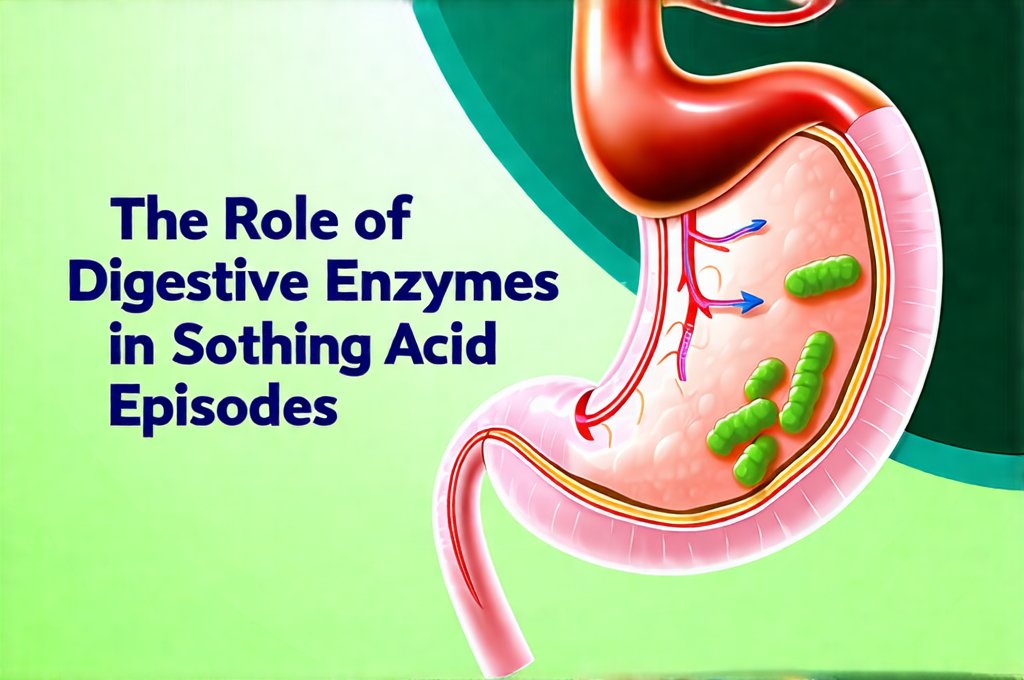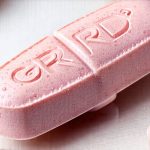Acid reflux, heartburn, indigestion – these are all too familiar experiences for millions. Often triggered by diet, stress, or even just the simple act of eating, these episodes can range from mildly irritating to severely disruptive. Many reach for over-the-counter antacids as a quick fix, and while effective in neutralizing stomach acid temporarily, they don’t address the root cause of why that acid is rising in the first place. Increasingly, attention is turning towards a more holistic approach – understanding the role of digestion itself, and specifically, how digestive enzymes might offer a complementary strategy for soothing these uncomfortable episodes. The digestive system is a complex orchestration, and when one part falters, it can create a cascade of issues that manifest as acid-related symptoms.
Traditional approaches often focus on suppressing stomach acid, but this can sometimes inadvertently hinder the natural digestive process. A healthy digestive system relies on adequate levels of acidity to break down food effectively, absorb nutrients, and even protect against harmful bacteria. Long-term suppression might lead to nutrient deficiencies or other imbalances. Therefore, exploring ways to support digestion – rather than simply shut it down – is becoming a prominent area of interest for those seeking long-lasting relief from acid episodes. This exploration involves understanding the intricate relationship between enzyme production, dietary habits, and overall gut health.
The Digestive Process & Enzyme Deficiency
The process of digestion begins even before food enters your mouth. Simply seeing or smelling food triggers cephalic phase digestion – preparing the body for what’s to come. Once you eat, the stomach releases hydrochloric acid (HCl) and enzymes like pepsin to begin breaking down proteins. However, a significant portion of digestion occurs in the small intestine, where pancreatic enzymes and bile work together to further break down carbohydrates, fats, and proteins. Crucially, these enzymes are essential for efficient food breakdown; if they’re lacking or insufficient, undigested food can ferment in the gut, leading to gas, bloating, and ultimately, acid reflux as pressure builds.
Enzyme deficiencies aren’t always obvious. They can stem from several factors including:
– Aging (enzyme production naturally declines with age)
– Poor diet (lacking enzyme-rich foods or nutrients required for enzyme synthesis)
– Chronic stress (which can impair digestive function)
– Certain medical conditions impacting pancreatic or intestinal health
When food isn’t properly broken down, it lingers longer in the stomach. This increases the chance of acid reflux as the stomach becomes fuller and pressure rises. Undigested food also creates a breeding ground for gas-producing bacteria, exacerbating bloating and discomfort. It’s not necessarily an overproduction of stomach acid causing the problem; it’s often an inability to efficiently process what you’ve eaten.
Furthermore, modern diets – often high in processed foods and low in naturally occurring enzymes – contribute to this issue. Historically, our ancestors consumed more raw, enzyme-rich foods. Today’s cooking methods destroy many of these natural enzymes, placing a greater burden on the body to produce its own. This can overwhelm digestive capacity over time, leading to symptoms like acid reflux.
How Digestive Enzymes Can Offer Support
Digestive enzymes are essentially catalysts that speed up chemical reactions in the body, specifically breaking down food molecules into smaller, absorbable units. Supplementing with a broad-spectrum enzyme formula – one containing amylase (for carbohydrates), protease (for proteins), and lipase (for fats) – can help alleviate the burden on your digestive system. It’s important to note that enzymes are not intended as a replacement for healthy dietary habits or medical treatment. Instead, they can be used as a supportive measure alongside lifestyle modifications.
The benefit isn’t just about breaking down food; it’s about reducing fermentation and gas production. When food is properly digested, there’s less opportunity for bacteria to create excess gas, minimizing pressure on the lower esophageal sphincter (LES) – the valve that prevents stomach acid from flowing back up into the esophagus. Some enzyme formulations also include ingredients like ginger or fennel, known for their soothing properties and ability to support healthy gut motility. Proper motility ensures food moves through the digestive tract at an appropriate pace, reducing the risk of stagnation and reflux.
Choosing the right enzyme supplement is important. Look for products that are formulated with enteric coating. This protects the enzymes from being destroyed by stomach acid before they can reach the small intestine where they’re most effective. It’s also wise to consider a formula tailored to your specific dietary needs – for example, if you frequently consume dairy, an enzyme blend containing lactase (to digest lactose) might be beneficial.
Identifying Potential Enzyme Deficiencies
Pinpointing whether or not you have an enzyme deficiency can be tricky, as symptoms often overlap with other digestive issues. However, certain clues may indicate a potential need for enzyme support:
– Frequent bloating and gas after meals
– Undigested food visible in stool
– Feeling full quickly even after eating small amounts
– Diarrhea or constipation
– Heartburn or acid reflux that doesn’t respond well to antacids
Keeping a food diary can be incredibly helpful. Track what you eat, when you experience symptoms, and the severity of those symptoms. This can help identify trigger foods and patterns that suggest an enzyme deficiency related to specific food groups. For example, if bloating consistently occurs after consuming dairy, lactase supplementation might prove beneficial.
It’s also worth considering a trial period with digestive enzymes. Start by taking them with your largest meal and observe whether your symptoms improve. If you notice significant relief, it suggests that enzyme support is helping your body digest food more efficiently. Remember to consult with a healthcare professional before starting any new supplement regimen.
Optimizing Enzyme Effectiveness
Simply taking an enzyme supplement isn’t always enough. Several factors can influence how well enzymes work:
1. Timing: Take enzymes immediately before or with meals, as they need to be present when food arrives in the small intestine.
2. Dosage: Follow the instructions on the product label and adjust based on your individual needs and tolerance. Start with a lower dose and gradually increase if necessary.
3. Diet: Focus on consuming whole, unprocessed foods whenever possible. This reduces the burden on your digestive system and allows enzymes to work more efficiently.
Beyond supplementation, you can also support natural enzyme production through dietary choices. Incorporating enzyme-rich foods into your diet is a proactive step. Examples include:
– Pineapple (contains bromelain)
– Papaya (contains papain)
– Mangoes (contain amylases)
– Fermented foods like kimchi and sauerkraut (naturally contain enzymes from the fermentation process).
The Gut Microbiome Connection
The gut microbiome—the trillions of bacteria residing in your digestive tract—plays a vital role in digestion. These beneficial bacteria help break down food, produce vitamins, and support overall gut health. An imbalance in the gut microbiome – known as dysbiosis – can negatively impact enzyme production and contribute to acid reflux symptoms.
Chronic stress, antibiotic use, and a diet high in processed foods can disrupt the delicate balance of the gut microbiome. Restoring microbial diversity is crucial for optimal digestion. This can be achieved through:
– Consuming probiotic-rich foods like yogurt, kefir, and kombucha.
– Taking a probiotic supplement (consult with a healthcare professional to choose the right strain).
– Eating a fiber-rich diet to nourish beneficial bacteria.
A healthy gut microbiome supports efficient digestion and reduces fermentation, ultimately minimizing acid reflux episodes. It’s important to remember that digestive health is interconnected – enzyme support, dietary choices, and gut microbiome balance all work together to create a comfortable and functional digestive system. While enzymes can be a valuable tool for soothing acid episodes, they are most effective when integrated into a holistic approach to gut health. Digestive enzymes play a significant role in this process. Furthermore, understanding liver function is key to overall digestive wellness. If you suffer from chronic issues consider alleviating symptoms with targeted support. Lastly, exploring the role of digestive enzymes in stomach health can provide additional insights.


















